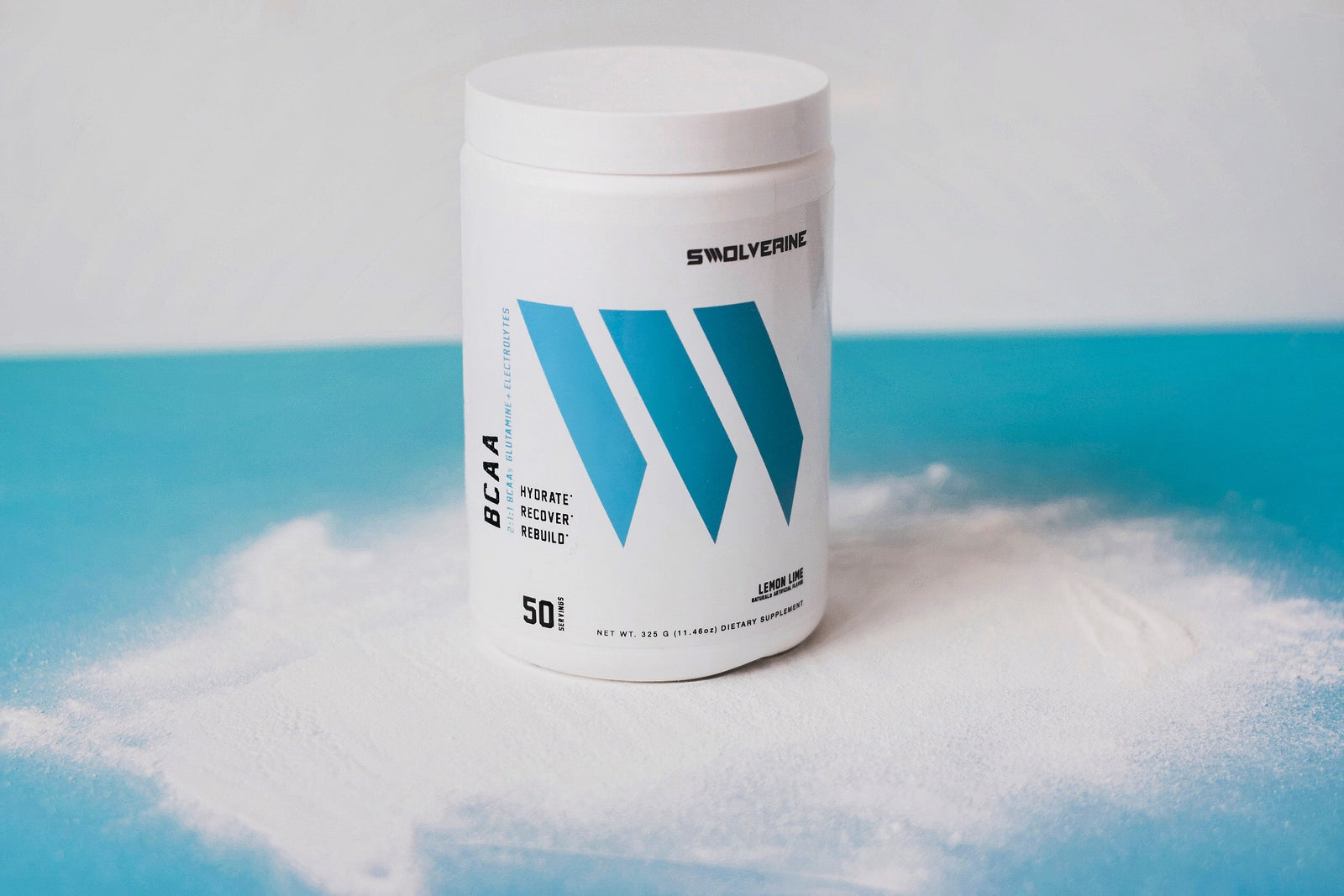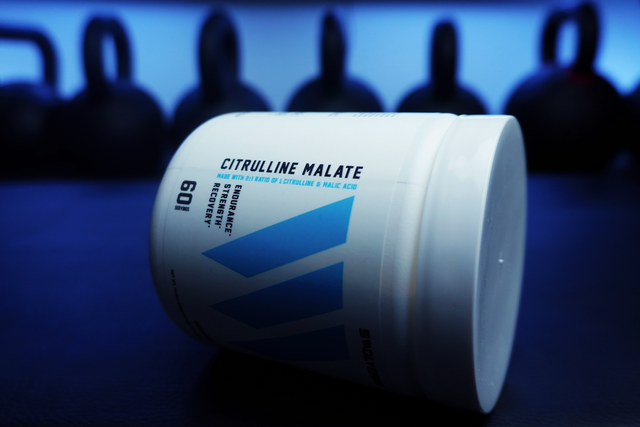When it comes to building lean muscle, boosting endurance, and recovering faster, protein and BCAAs are two of the most trusted supplements in the fitness world. But if you’ve ever wondered whether you really need both—or which one is better for your goals—you’re not alone.
While both play a major role in muscle growth and repair, they serve very different purposes. Protein provides your body with all 20 amino acids, making it essential for total recovery and full-body support. On the other hand, BCAAs—leucine, isoleucine, and valine—are the most targeted aminos, crucial for fast-acting performance, muscle preservation, and energy during training.
In this guide, we’ll answer the most commonly asked questions about BCAAs vs protein—from training fasted and cutting calories to optimizing post-workout recovery—so you can make the best choice for your body and your goals.
What Is Protein?
Why Protein Is Essential for Performance and Recovery
Protein is one of the three macronutrients your body requires to thrive—alongside carbohydrates and fats. It plays a central role in muscle growth, repair, enzyme function, and hormonal balance. Most importantly, protein activates muscle protein synthesis (MPS)—the body’s process of building muscle—while reducing muscle protein breakdown (catabolism) (Phillips et al., Nutrition & Metabolism).
Protein is composed of amino acids, which include 11 non-essential amino acids (produced by the body) and 9 essential amino acids (must be obtained from food or supplements). These amino acids serve as the raw material for rebuilding tissue, promoting adaptation to training, and accelerating recovery.
🔗 Related Article: What’s The Difference Between Complete vs Incomplete Proteins?
Complete vs Incomplete Proteins
A complete protein contains all nine essential amino acids in adequate proportions. These are typically found in animal-based foods (e.g., meat, fish, eggs) and dairy-derived supplements such as whey protein, casein, and egg protein. Incomplete proteins—mainly from plant sources—lack one or more essential amino acids. However, combining various plant-based proteins (like pea and rice) can form a complete profile (Hoffman & Falvo, Journal of Sports Science & Medicine).
🔗 Related Article: What Is The Best Source Of Plant-Based Protein?
Why Supplement with Protein?
Scientific evidence consistently shows that supplementing with protein before or after workouts can promote greater muscle growth, improved recovery, and better body composition (Tipton et al., Journal of Physiology). “Fast-acting” proteins such as whey protein isolate cause a rapid rise in plasma amino acid concentrations, making them ideal for stimulating muscle protein synthesis shortly after ingestion.
🔗 Related Article: Do You Really Need Protein Powder?
Benefits of Protein
Protein Builds Lean Muscle Mass
Whey protein isolate is considered the most anabolic of all protein types due to its high branched-chain amino acid (BCAA) content—specifically leucine, isoleucine, and valine. These amino acids are directly responsible for triggering muscle protein synthesis and suppressing protein degradation (Blomstrand et al., Acta Physiologica Scandinavica).
During intense exercise, BCAAs are rapidly oxidized. Without adequate replenishment, muscle breakdown may exceed muscle building. Supplementing with a fast-digesting protein ensures your body maintains a positive amino acid balance, allowing you to recover and grow efficiently.
Clinical Evidence
A study published in the Journal of the International Society of Sports Nutrition observed 30 recreationally active men and women who consumed 46g of whey protein isolate post-exercise for 8 weeks. Using DXA scans and 1RM testing, the results were as follows:
-
+4.7% increase in lean body mass
-
-8.3% decrease in body fat
-
+19.3% increase in bench press 1RM
-
+17.6% increase in deadlift 1RM
(Lockwood et al., JISSN)
Protein Supports Weight Loss
Protein—especially whey isolate—is low in calories, fat, carbohydrates, and sugar, making it ideal for fat loss and maintaining muscle mass while in a calorie deficit. It also increases satiety, helping reduce hunger and prevent overeating (Westerterp-Plantenga et al., The American Journal of Clinical Nutrition).
In a randomized, double-blind controlled study, 86 resistance-trained men were given 30g of whey protein isolate post-workout over a 12-week training program. Subjects who consumed protein experienced significantly greater gains in fat-free mass and strength, and improved body composition versus carbohydrate-only groups (Cribb et al., JISSN).
🔗 Related Article: Post-Workout Nutrition: What To Eat For The Best Results
Protein Enhances Muscle Recovery
Efficient recovery enables higher training volume, improved athletic performance, and long-term adaptation. Whey protein isolate has been shown to reduce exercise-induced muscle damage, increase plasma amino acid levels, and stimulate muscle protein synthesis (Tang et al., British Journal of Nutrition).
Its high BCAA content—particularly leucine—and rapid absorption rate make it more effective than slower-digesting proteins for post-training recovery. Additionally, whey isolate contains high levels of L-glutamine, which supports immune function, gut health, and reduces post-exercise soreness (Castell, International Journal of Sports Medicine).
Summary: Key Benefits of Protein
Why Protein Should Be a Daily Staple
-
Builds lean muscle mass
-
Reduces muscle breakdown
-
Increases strength and power
-
Boosts metabolism
-
Improves body composition
-
Enhances recovery
-
Helps maintain fat loss
-
Supports overall athletic performance
Protein isn’t just for bodybuilders—it’s for anyone who wants to train harder, recover faster, and perform better. Whether you’re lifting, sprinting, or simply staying active, hitting your daily protein needs is one of the most important steps toward achieving your fitness goals.
What Are BCAAs?
The Role of Branched-Chain Amino Acids in Performance and Recovery
Branched-Chain Amino Acids (BCAAs) are three of the nine essential amino acids: leucine, isoleucine, and valine. These amino acids are considered essential because the human body cannot synthesize them naturally—they must be obtained through diet or supplementation.
BCAAs are widely known as the building blocks of protein, playing a critical role in muscle protein synthesis, reducing muscle breakdown, and enhancing exercise performance. Among them, leucine is especially important for activating the mTOR pathway, which regulates muscle cell growth (Nair et al., The American Journal of Clinical Nutrition).
🔗 Related Article: Do BCAAs Really Work? The Ultimate Guide to BCAA Supplements
Benefits of BCAAs
Delays Fatigue and Improves Energy Levels
Fatigue during training is influenced by factors like intensity, duration, and neurochemical changes. One proposed mechanism involves a shift in brain chemistry—specifically, an increase in serotonin (5-HT) levels. During exercise, tryptophan, an amino acid, crosses the blood-brain barrier and is converted into serotonin, signaling the brain that the body is fatigued.
BCAAs compete with tryptophan for the same transport carriers. When BCAA levels are elevated, less tryptophan crosses into the brain, leading to lower serotonin levels and thus delayed fatigue and greater endurance (Blomstrand et al., Journal of Sports Medicine and Physical Fitness).
Improves Post-Workout Muscle Recovery
Resistance training creates micro-tears in muscle fibers, resulting in muscle soreness and temporary reductions in strength and power. Supplementing with BCAAs may reduce soreness and speed up recovery between sessions.
In a randomized, double-blind, placebo-controlled study published in Nutrients, participants supplementing with BCAAs reported significantly less muscle soreness 72 hours after training compared to the placebo group (Howatson et al., Nutrients).
Increases Power Output
Power is a key performance metric in strength and conditioning. It refers to the rate of energy output (ATP turnover) during maximal efforts. Improved peak power output can enhance performance in sprinting, weightlifting, CrossFit, and other explosive sports.
A 10-week double-blind study by the School of Kinesiology at Auburn University assessed 18 trained cyclists given either 12g of BCAAs or a placebo daily. The BCAA group demonstrated a 19% increase in peak and mean power output, showing a strong connection between BCAA use and improved performance capacity (Mata et al., Journal of the International Society of Sports Nutrition).
BCAA Benefits Summary
-
Reduces mental and physical fatigue
-
Supports muscle growth
-
Minimizes muscle protein breakdown
-
Delays muscle fatigue during training
-
Accelerates post-exercise recovery
-
Enhances strength and power output
What’s the Difference Between BCAAs and Protein?
Amino Acids vs Whole Protein
At the molecular level, BCAAs are simply a part of a complete protein structure. While protein includes all 20 amino acids (essential and non-essential), BCAAs include only three essential amino acids—leucine, isoleucine, and valine.
This makes BCAAs more targeted in their function. While whole protein supports a wide array of metabolic and enzymatic reactions, BCAAs are primarily involved in stimulating muscle protein synthesis, regulating energy metabolism, and delaying fatigue during exercise.
BCAAs vs Protein: Frequently Asked Questions
Do I Need BCAAs If I Take Protein?
Not necessarily—it depends on your training goals, nutrient timing, and total dietary protein intake. Protein powder (like whey isolate) is a complete protein, meaning it already contains all essential amino acids, including BCAAs. However, BCAAs are more targeted and can be taken pre- or intra-workout to support endurance, delay fatigue, and reduce muscle breakdown when fasted or training intensely.
Use protein when:
-
You’re not meeting your daily protein intake
-
You need a full-spectrum amino acid profile post-workout
-
You want to improve muscle recovery and composition
Use BCAAs when:
-
You train fasted or restrict calories
-
You want to delay muscle fatigue and improve endurance
-
You’re already meeting your protein intake but want to further support recovery and performance
Should I Take Protein or BCAAs on a Calorie-Restricted Diet?
On a calorie-restricted diet, whey protein isolate is a great option because it offers high-quality protein with minimal carbs and fats. However, BCAAs contain zero calories, making them ideal for muscle support without adding to your caloric intake.
If you’re hitting your protein target through whole foods, BCAAs can still be used to maintain muscle and recovery. If you're falling short on your intake, a protein supplement should be prioritized.
🔗 Related Article: 5 Reasons Why Whey Protein Isolate Is The Best Protein For Athletes
Should I Take Protein or BCAAs While Fasting?
BCAAs are ideal during intermittent fasting because they contain no calories and won’t spike insulin significantly, meaning they’re unlikely to break a fast. They can help preserve lean muscle mass and reduce fatigue during fasted training.
Protein, on the other hand, contains calories and will break your fast. Save it for post-workout or feeding windows.
Does Protein or BCAAs Help Build Muscle Mass?
Yes—both support muscle growth, but in different ways.
-
Protein delivers a complete amino acid profile to stimulate muscle protein synthesis (MPS) and promote full recovery.
-
BCAAs, especially leucine, directly stimulate MPS and reduce muscle breakdown—making them useful around workouts or during fasting.
Research supports both as effective, with protein being more complete and BCAAs offering faster-acting, targeted support (Phillips et al., Nutrition & Metabolism).
Should I Put BCAAs in My Post-Workout Protein Shake?
It’s not necessary. High-quality protein powders (like whey isolate) already contain the full spectrum of amino acids, including BCAAs. Adding more BCAAs on top may not provide additional benefit and could be a waste of product.
Should I Take BCAAs Before or After My Workout?
BCAAs can be taken pre-, intra-, or post-workout, but timing depends on your goals:
-
Before workout: Helps reduce muscle breakdown, especially if training fasted
-
During workout: Sustains amino acid levels, delays fatigue
-
After workout: Supports muscle repair—best if you're not consuming a full protein source immediately
For optimal results, sip on BCAAs before and during training, and if you want to enhance recovery, choose a post-workout formula with BCAAs and L-glutamine for added muscle repair.
Can BCAAs Replace Protein?
No. BCAAs cannot replace a full protein source. They only include three essential amino acids, while your body needs all nine EAAs to fully stimulate muscle protein synthesis and support tissue repair. Use BCAAs to supplement your protein intake, not replace it.
Are BCAAs or Protein Better for Recovery?
Protein is more comprehensive and better for full-body recovery. BCAAs can help minimize muscle soreness and support immediate post-exercise recovery, especially if you're not able to eat right after a workout.
Are There Any Side Effects of Taking BCAAs or Protein?
Both are generally safe when taken within recommended dosages. However:
-
Too much protein may lead to digestive discomfort in some individuals
-
Excessive BCAAs without sufficient EAAs may lead to amino acid imbalances over time
Always follow dosing instructions and consult with a healthcare provider if you have pre-existing conditions.
Conclusion: BCAAs vs Protein – Use Each Strategically
When it comes to BCAAs and protein, it’s not about choosing one or the other—it’s about knowing when to use each for maximum results.
-
Use protein to hit your daily intake, repair muscle, and support long-term strength and body composition.
-
Use BCAAs for fasted training, intra-workout endurance, and muscle preservation when you’re deep in a deficit or high-intensity phase.
Ultimately, both tools can elevate your performance and recovery—if used strategically. Understanding how and when to supplement with each gives you an edge in your training and ensures that your body stays primed for progress.
Still unsure what’s best for your routine? Start with your training goals and adjust based on your nutrition, energy demands, and recovery needs. Your body will thank you—with better workouts, stronger lifts, and faster gains.













